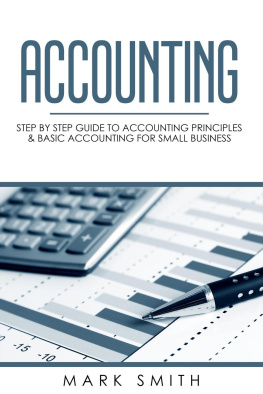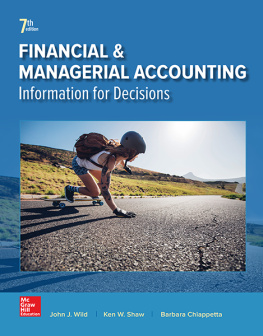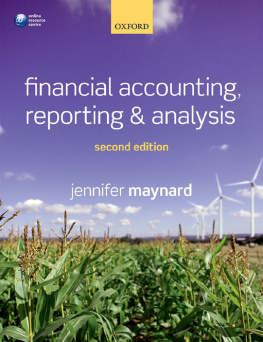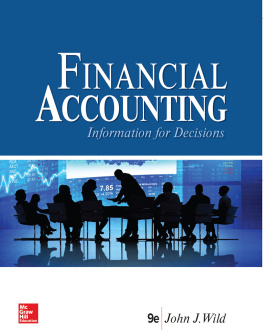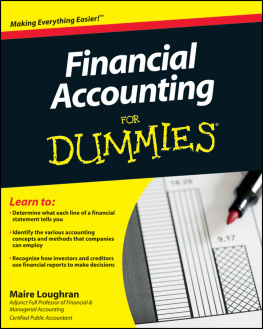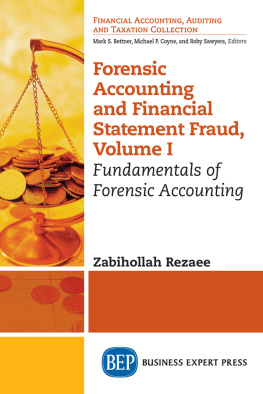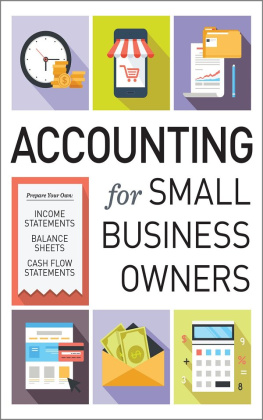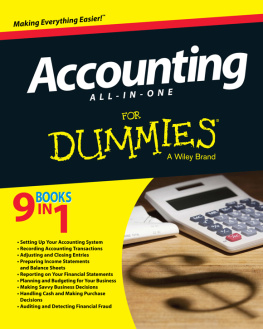More Advance Praise for The Reckoning
Packed with riveting stories of how empires can be so easily felled by poor accounting, whether through willful disregard (Louis XIV) or lack of training (Lorenzo de Medici), The Reckoning is a must read for anyone who hopes to avoid similar fates. But the book is more than a litany of woes. Every student, teacher and practitioner of finance should know this history of accounting, from its grounding in theology and philosophy to its central place in the rise of modern commerce, statecraft, and, indeed, civilization itself.
Robert Bloomfield, Nicholas H. Noyes Professor of Management and Accounting, Cornell University
Accountability and the trust it breeds made possible business and government as we know them in the West, a history The Reckoning recounts engagingly. Yet every eras Madoffs, magnates and mega-organizationsand, critically, their minionssubverted that relationship with catastrophic results of which 200809 is only the most recent. Jacob Soll has persuaded me that this time, its different: our traditions of accountability could be destroyed yielding a reckoning we cannot project.
Peter D. Kinder, co-author, Ethical Investing and Investing for Good; co-founder, KLD Research & Analytics, Inc.
THE RECKONING
THE
RECKONING

FINANCIAL ACCOUNTABILITY
and the RISE and FALL of NATIONS
JACOB SOLL
BASIC BOOKS
A Member of the Perseus Books Group
New York
Copyright 2014 Jacob Soll
Published by Basic Books,
A Member of the Perseus Books Group
All rights reserved. No part of this book may be reproduced in any manner whatsoever without written permission except in the case of brief quotations embodied in critical articles and reviews. For information, address Basic Books, 250 West 57th Street, New York, NY 10107.
Books published by Basic Books are available at special discounts for bulk purchases in the United States by corporations, institutions, and other organizations. For more information, please contact the Special Markets Department at the Perseus Books Group, 2300 Chestnut Street, Suite 200, Philadelphia, PA 19103, or call (800) 810-4145, ext. 5000, or e-mail .
Designed by Jack Lenzo
A CIP catalog record for this book is available from the Library of Congress.
ISBN (e-book): 978-0-465-03663-9
10 9 8 7 6 5 4 3 2 1
I credit this book to Margaret Jacob
C ONTENTS
I n September 2008, just as I was finishing a book about the French King Louis XIVs famed finance minister, Jean-Baptiste Colbert, I found something remarkable: Colbert commissioned miniature golden calligraphy account books for the Sun King to carry in his coat pockets. Twice a year, starting in 1661, Louis XIV would receive these new accounts of his expenditures, his revenues, and his assets. It was the first time a monarch of his stature had taken such an interest in accounting. Here, then, it seemed, was a starting point of modern politics and accountability: a king who carried his accounts so that at all moments he might have some reckoning of his kingdom.
I was at least as startled to learn next just how short-lived this experiment was. For as soon as Colbert died, in 1683, Louisconsistently in the red due to his predilection for costly wars and palaces like Versaillesdiscontinued the account books. Rather than tools of administrative success, Louis came to see his account books as illustrations of his failings as a king. He had created a system of accounting and accountability, and now he began breaking up the central administration of his kingdom. This made it impossible to unify the accounts of each ministry into one clear, central register, as Colbert had done, and for any minister to effectively critique, let alone understand, the kings financial management. If good accounting meant facing the truth when the news was bad, Louis, it seemed, now preferred ignorance. Speaking those famous words, ltat cest moi, he apparently really meant it. No longer would a functioning state interfere with his personal will. On his deathbed in 1715, Louis admitted that he had in effect bankrupted France with his spending.
Rather than some relic of a bygone age, the story of Louiss rise and decline seemed to me all too familiar as I digested the parable of the Sun Kings golden notebooks. That very week in September, a startling parallel story was taking place during the collapse of Lehman Brothers Bank. A monument of American and world capitalism, Lehman was suddenly exposed now as little more than a mirage. Just as Louis had held onto his power through snuffing out good accounting in his government, so U.S. investment banks had made untold riches, even as they destroyed their own institutions by cooking their books through trading overvalued bundles of worthless subprime mortgages and credit default swaps. A financial system, which had been deemed healthy by accountants and regulators alike, now revealed itself as dysfunctional by design.
If Louis preferred not to know, so, too, it seemed, Wall Street and its regulators had chosen to overlook the rot threatening the entire financial system. The chairman of the New York Federal Reserve, Timothy Geithner, was supposed to have at least an expert knowledge of the financial markets, yet he appeared not to know, or know fully, what was going on just blocks from his office. The Securities and Exchange Commission (SEC)whose responsibility it is to enforce good corporate accountingwas caught similarly unaware, as were the Big Four accounting firmsDeloitte, Ernst & Young, KPMG, and PricewaterhouseCoopers. No one, it seemed, had effectively audited the banks books. They missed the barely hidden fact that Lehman Brothers used accounting fraud to manipulate its accounts and appear solvent.
Soon after Lehman Brothers collapsed in September 2008, other American investment banks began failing, and the world financial system was threatened with collapse. In October, the Bush administration stepped in to bail out the banks and buoy the financial system. Thus came to pass the Troubled Asset Relief Program (TARP), which gave massive funds to troubled banks and put the American capitalist economy on a government life support system. By 2009, Barack Obama was president, promoting Geithner to Secretary of the Treasury. Yet, in spite of Obamas claims of a new age of accountability, a sense of impunity pervaded Wall Street. The $350 billion recapitalization of American banks managed to stave off the financial chaos that risked consuming the world economy. Yet, no strings were attached to the money. No audits were ever made to see how the banks spent it. Americas economy stumbled, but the bankers, at least, had avoided a reckoning.
Six years later, it is not just banks that are threatened by financial crisis brought on by bad bookkeeping. Leading nationsthe United States, European countries, and Chinafind themselves facing their own larger potential crises of accounting and accountability. From opaque banks and the sovereign debts of Greece, Portugal, Spain, and Italy, to the financing of municipalities worldwide, there seems little certainty in balance sheets and reports on debt levels and pension obligations. Confidence in private auditors and public regulators also lags. At the very moment we most need careful audits to assess balance sheets, the SEC remains woefully underfunded, and government regulation has limited the capacity of the Big Four accounting firms to aggressively audit corporations.
There has been little to no outcry over dangerously feeble financial accountability, private and public alike. One hears complaints about the impunity of banks, on one hand, or some version of indignation over perceived government interference with the freedom of Wall Street, on the other. Yet there has been no serious discussion about what exactly financial accountability is, how it works, where it comes from, and why modern societies find themselves mired in crises of not only financial but also political accountability, as governments and citizens seem either unable or unwilling to hold corporations and themselves accountable.
Next page

